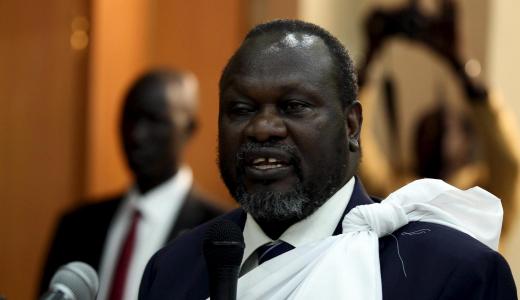Machar relieves five military governors, appoints others

July 27, 2017 (JUBA) – South Sudan armed opposition leader, Riek Machar on Thursday relieved five military governors of Upper Nile state and Bahr el Ghazal region and appointed new ones.
The new changes affected Lt.Gen Ruai Kuol Jal (Liech state), Lt.Gen Koang Gatkuoth Kerjok (Bieh state), Lt. Gen Sadam Chayout Manyang (Adar state), Maj. Gen Jokuino Fidel Nyikayo (Fashoda state) and Brig Gen Dhahya Ahmed Faraheldor of Raja state.
Machar, in a separate decree, immediately re-appointed five militarily governors for South Sudan’s newly-established states of Liech, Bieh, Adar, Fashoda and Raja.
“Pursuant to the resolutions of the SPLM Political Bureau September 23, 2016 and SPLM (IO) constitution and the restructuring the governance in the liberated areas, I Riek Machar Teny-Dhurgon Chairman and Commander –In-Chief, SPLM/SPLA (IO) do hereby appoint the following as military governors of the following States, as mentioned against each name, with effect from 27 July, 2017,” partly reads Machar’s decree, also extended to Sudan Tribune.
The new governors appointed by the rebel leader include, Lt. Gen Johnson Ulony Thabu (Fashoda) Maj.Gen Salah Momogi Mameri Koni (Raja) Brig Gen Koang Rambang Chol (Bieh) Brig Gen Tor Tunguar Kueiguong (Liech) and Brig Gen Nhail Nyal Ding (Adar).
The decree did not, however, explain why the rebel leader made the changes.
An official from the rebel faction told Sudan Tribune that the exercise was to strengthen the system of local governance in the country’s liberated areas.
Machar’s press secretary, Lam Kuei, the press secretary confirmed the changes, saying it was a “normal” procedure in any functional institution.
(ST)
